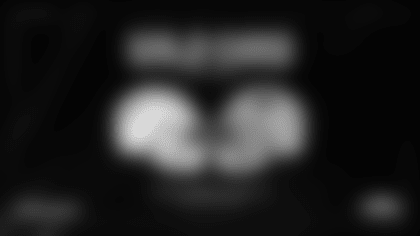HEAD COACH BILL BELICHICK
PRESS CONFERENCE
August 30, 2022
Q: How would you assess your team as you approach Miami and the regular season?
BB: We've certainly had a good opportunity to be in some warm weather this year. I'd say this has been a little bit warmer than usual training camp and then time in Vegas. I think that's one of those things that you don't really know until you get into playing in it. It's different to train in it then to actually play, so we'll see. Part of that is dependent upon the health of the team, the depth of the team. We'll see how that all plays out. I think the players that worked hard are generally in good condition. But game conditioning is different than practice conditioning, running sprints or running up a hill or whatever. I think we'll have to see that. There's an element of that for everyone to get into game condition. I think you can certainly build that in practice, but it'll be different in a game. To really be in real game condition probably takes through the month of September and maybe into October to go through the weekly soreness, the recovery, playing again and so forth.
Q: Do you think there are unique concerns about consistency with this team?
BB: Each team is different. I don't think there's a consistent theme from year to year. Players change and circumstances change and so forth. Each year has it's own unique aspects of that, but I think generally speaking, some parts of your team are further ahead than others. From the players, to the experience of the players working together. Players that work together multiple years are, from a communication standpoint, a familiarity standpoint, are generally speaking ahead of those who have had less time together. That's true with every team. With new players, there's a practice element, preseason game element, but it's different in the regular season when teams are game planning for you and they're making adjustments, recognitions, identifications. Clearly better players on the field to make it more of a problem. There's some areas that we have pretty good experience at and then there's other areas that we have less experience at, that we'll gain as we go.
Q: Do cuts weigh on you?
BB: Absolutely. Absolutely, without a doubt. Everybody knows what the situation is when we go into it. We have 90 players, we go to 53, thirty-seven of the 90 can't be on the team. Whichever 37 they are or aren't, that's another conversation, but 37 of the 90 can't make the 53-man roster. We all know that this is a production business, and it's very competitive. When you join the National Football League, you know what that's going to be. You're one of 90. You have to earn a spot as one of the 53. There's no new rules, ground rules, there's nothing new there. The actual process is very difficult for all of us. Myself, certainly assistant coaches who have established a close relationship with their players and respect for their players because of their effort, their work ethic and commitment that they make to the team. But ultimately, 37 of those 90 players can't be with the team. It's always difficult to talk to those players about the fact that they've done a lot, they've contributed a lot, they've worked hard, put a lot into it, but 37 of the 90, or now 27 of the 90 with the roster being at 80 are not going to be on the 53-man roster. That is difficult. It's difficult for the players. I'm sure all their family, friends and so forth, hear the news, contact them and so forth, there's a hard part about dealing with that. The flip side of that is 53 players with a 16-man practice squad puts you at 69. Let's call it 70. So now there's only 10 players that, again players could come from other teams and so forth, but just in round numbers, the 27 really is a little closer to 10. It'll be more than 10, but a little closer to 10 than the 27, because potentially there will be players asked to be on the practice squad, which will enable them to continue their career and their development in the National Football League. Just not on the 53-man roster. That's a little bit of a bridge in the whole process. I don't think any player would see that as good news, but it's not as bad as not being on the roster. It's some kind of a bridge in between. Honestly, for some players, practice squad is a realistic goal for them, at the initial stage of the process, at the 90 when they came to the team, whenever that was. Training Camp, draft, spring or whenever. Just being on the roster, being able to continue to develop their skills. Knowing that they're not quite ready in the short run, but they have long term potential. That's realistic too, in some cases. Long answer to your question. Some players we have to move on from. Some players there may have an opportunity on the practice squad, not on the 53-man roster. Then of course all of that is subject to the players individual situations. Whether that be a vested veteran and terminates as a free agent or whether he's subject to the waivers and we'll see what happens on that on Wednesday. When the other teams' respond to the waiver wire with potential claims. But it's a difficult time for players, the head coach and I would say the position coaches and other members of the organization that have established relationships with the players through whatever roles they have with the trainers, equipment people, operations, and so forth, PR, you name it.
Q: What growth did you see in Bailey Zappe from OTA's to now?
BB: Bailey, first of all, has been out there every day. Which is a good thing. He's been able to take reps. Learn from situations that he's experienced, improve on those. Get a better understanding and familiarity with the offense and also what's going on with the defensive side of the ball. He's improved in a lot of areas. Still has a lot of things to work on and a lot of experience to gain, but certainly trending in the right direction. As every quarterback that comes into the National Football League finds out, it's just a different game at this level. The pass rushers are better. The coverage players are faster. There's more man coverage generally, than what they've seen in college. There's a lot more press coverage than what they would see in college. There's a lot more different blitz packages and protection issues than what they've seen in college. Those things are all, I'd say, big adjustments or things that the quarterbacks have a high volume of issues to deal with, but those are really the big ones. The multiplicity of coverages, the tightness of the coverage and the pass rush slash blitz combinations. There's no substitute for experience. There's a lot of on the job learning there. You can x and o it, put it on the blackboard. This coverage and this route, all that stuff. But what you're actually seeing on the field is a little bit different when the quarterback has to take everything into account. The protection, the pass rush, the type of coverage that's being played and then the actual route that is being called.
Q: How would you evaluate Cole Strange's development?
BB: Similar comments. Different position, but similar comments. Cole's been out there every day. He's taken a lot of snaps, a lot of reps, which he needs. Has learned from them. Has improved fundamentally in a lot of areas. Still has a way to go. He's kind of seeing a different level of player than what he saw in college, from a talent standpoint. In addition, there are more looks, more identification, more things that defenses do to cause the offense problems. We've seen that in the preseason games, from New York, Carolina, to Vegas and the practices against both Vegas and Carolina. The multiplicity of the things that those teams did, more in practice than in the games, but some of it showed up in the games as well. The wheels are turning like they are for all rookies. Cole's done a good job of learning from situations, improving his techniques, improving his fundamentals, improving his communication. Still a long way to go, but very much moving in the right direction.
Q: What has Nick Folk's consistency and professionalism meant to this team?
BB: It's meant a lot. The consistency from Nick is really remarkable. He's a very, very professional player and athlete. Not just the kicking part of it, but really everything. His interactions with his teammates, specialists, other members of the team. His understanding of his role. What the role of the kicking game is. What the roles of different players are. He's a very supportive and likable teammate. But, at the same time, knows that his job hinges on performance, it's not just relationships. Those are important, but he has all that, and his production and consistent performance is really impressive. His balls are straight, they're down the middle, and timing's good. We've had, as you know, out there we've had a pretty decent amount of wind for this time of year at training camp practices and he's handled that extremely well. We'll see what we get in the stadium this year with the new configuration down in the old lighthouse end. We didn't have much wind in the Carolina or Giants preseason games, but at some point, that'll change. It'll be interesting to see how all of that plays out. But we have kicked in some windy conditions there in practice, inside. That's something that's a little bit new for us and for particularly Nick. But, as usual he seems to be handling the situation very professionally and well.
Q: How much value is added to your team in having a strong special teams group filling up roster spots?
BB: We're always looking to be as strong as possible in every phase of the game, offense, defense, special teams. Of course, a big part of special teams is the specialists. Those players are key players on every play, whether it be the snapper, the holder, the punter, the kicker, the returner and the impact players that affect those units. Matt Slater in coverage, Cody Davis in coverage, people like that. That's where it all starts. Then you obviously fill in after that, but you have to have those players to work around and that impact the game first. Always looking to perform well in those areas. Whatever did or didn't happen last year. We had plenty of good plays, we had some plays that weren't good, that we'd like to have back. This year is really all about this year. The evaluation of the performances of the players that are competing for playing time or roster spots in those areas. Between the four joint practices that we've had, that's given us a lot of high tempo reps, in addition to the ones we got in the preseason games. That's helpful in the evaluations. As you know, a lot of the reps in the games, whether it was full speed, protection, coverage, tackling, blocking, running, were handled by players with less experience in the kicking game for the New England Patriots. It gave us a good opportunity to evaluate those players and to develop the process of each unit, as you know is 66 players. Eleven in each of the four kicking units, not counting the hands team and some other special situations, things like that. Then of course you have to have backups in those 66 spots as well. Field goal, field goal block, punt, punt returner, kickoff, kickoff returner. Talking about a lot of people that are involved there. Certainly, some people have multiple roles. Some of the impact special team players, someone like Matt Slater as an example, would have roles on five of the six teams. One guy knocks out five of those 66 spots. But then there are other players who only have one spot. Whether that's one of the specialists or whether it's another player who takes his offensive or defensive role and also subsidizes the roles of the kicking game that we need filled. Again, combination of players who will get more time on the kicking game than they probably will on offense or defense with some players who are, let's call it, back up players, that will be involved in the kicking game, to players that will have a lot of offensive and defensive playing time but will also have a role on the kicking game as well. That can vary from one phase to two or three phases depending on the individual, the need and what our injury situation is or how much depth we have in the position they play. They might be called into play a little more or a little less. That's kind of where we are on that. It's a big conversation, as we've talked about in terms of numbers. There's a lot of people involved. Somebody has to fill those roles. You have to put 66 people out there in each of those special teams units and back them up. That's part of the juggling act of a 46-man roster of how to do that on game day, every week. We'll all fall into a rhythm at a certain point and time where it's probably pretty established on who that's going to be. But I'd say at this point, those questions are more up in the air than they will be, call it, mid-October, early November.
Q: How much of practice tomorrow and Thursday will be dedicated to preparing for Miami versus cleaning up anything you want to address from the preseason and Training Camp?
BB: I'm sure it will be a combination of both. We'll discuss that today. The exact conversation that you brought up. We have two practices before we begin our Miami preparations in earnest. Not that we haven't started to look at Miami and talk about that, but as you said, there's still some things to clean up. Particularly as it relates to situational football. We haven't dealt with any of those in preseason games with the players who are most likely going to be on the field for those. We have dealt with them in practice, and we have practiced against them with Carolina and Vegas, to a degree. But there's certainly an opportunity to expand on those and utilize these two days as part of our situation preparation, as well as general clean up in some areas that we need to address, as well as start to get a little bit ahead on Miami. I think we know some of the things that we're going to have to be dealing with there. Sometimes it's good to run some plays just to get a look at, rather than wait until next week, when we're already into a gameplan. Get a look at some of those things on Wednesday and Thursday this week. Maybe modify them, change them or throw them out. Maybe add something else that compliments it as we get a little cleaner look at it in practice. You're not just talking about diagrams on a piece of paper, we're actually seeing what the play on the field against a simulated Miami, offense or defense, whatever it happens to be. Combination of all three.







































